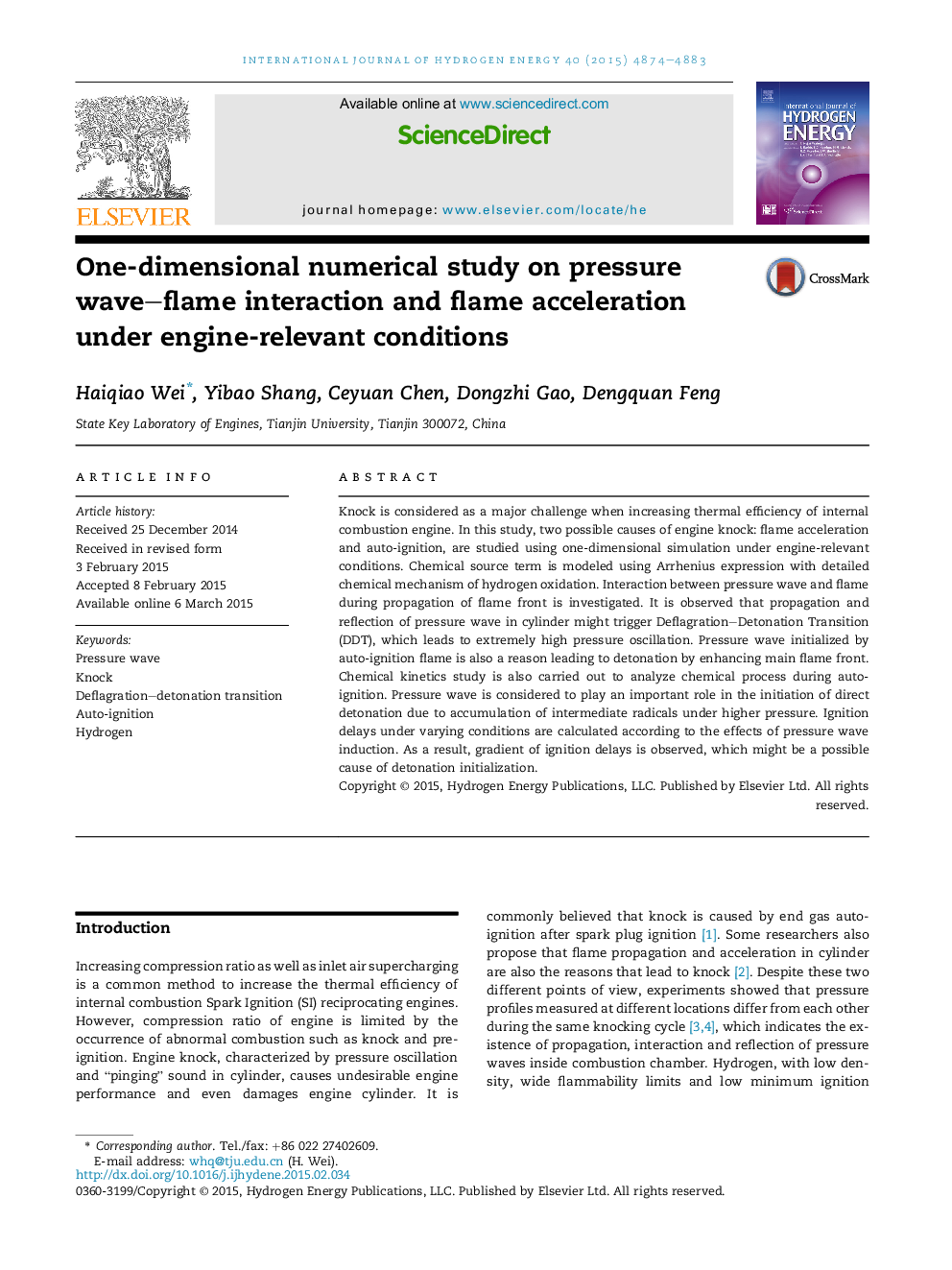| Article ID | Journal | Published Year | Pages | File Type |
|---|---|---|---|---|
| 1271597 | International Journal of Hydrogen Energy | 2015 | 10 Pages |
•DDT process triggered by pressure wave is observed in our simulation.•Direct detonation is found to be caused by pressure wave induction.•Sensitivity analysis is employed to study chemistry under different pressure.•Ignition delays are affected by pressure variations in end gas.
Knock is considered as a major challenge when increasing thermal efficiency of internal combustion engine. In this study, two possible causes of engine knock: flame acceleration and auto-ignition, are studied using one-dimensional simulation under engine-relevant conditions. Chemical source term is modeled using Arrhenius expression with detailed chemical mechanism of hydrogen oxidation. Interaction between pressure wave and flame during propagation of flame front is investigated. It is observed that propagation and reflection of pressure wave in cylinder might trigger Deflagration–Detonation Transition (DDT), which leads to extremely high pressure oscillation. Pressure wave initialized by auto-ignition flame is also a reason leading to detonation by enhancing main flame front. Chemical kinetics study is also carried out to analyze chemical process during auto-ignition. Pressure wave is considered to play an important role in the initiation of direct detonation due to accumulation of intermediate radicals under higher pressure. Ignition delays under varying conditions are calculated according to the effects of pressure wave induction. As a result, gradient of ignition delays is observed, which might be a possible cause of detonation initialization.
